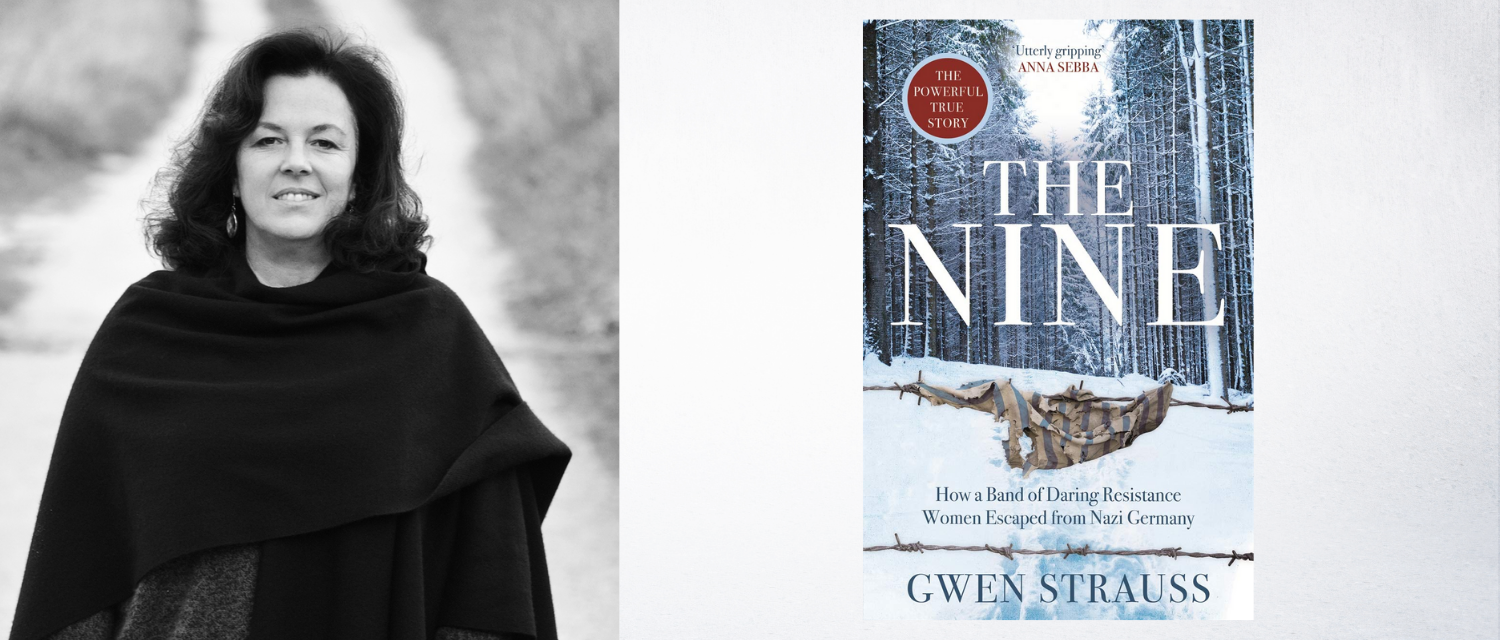-
BROWSE 1000s OF BOOKS IN STOCK
-
FREE DELIVERY ON ORDERS OVER €10
Eason Exclusive: The Nine by Gwen Strauss
The Nine follows the true story of the author’s great aunt Hélène Podliasky, who led a band of nine female resistance fighters as they escaped a German forced labour camp, and made a gruelling ten day journey across the front lines of Word War 2 from Germany back to Paris. Here, in an exclusive piece for the Eason blog, author Gwen Strauss shares a short piece about one of ‘The Nine’s least knownwomen, Josephine Bordonava.

DRAFT
Post for Josée’s birthday March 28, 1924
It took me a long time to find Josée in the archive. I knew from accounts that she was Spanish and young, the youngest of the group of Nine women. I knew she had a beautiful singing voice. For a while I thought she was someone else, one of the eight Spanish women listed as being at Leipzig HASAG by Mercedes Nunez Targa, who was the secretary for Pablo Neruda. She wrote an account of her time in the camps, and the trail after the war of her torturer.
But most of the women on Mercedes’ list were too old to be Josée. The only one who was young enough turned out to be married. I knew that the Josée at the time of the escape was not married.
One day in a random document I saw that a Josephine Bordonava at Leipzig HASAG was listed as being Spanish. Both her parents were Spanish refugees. She was not part of the politically active Spanish Republicans in the camp and so not part of Nunez Targa’s list, but there she was.
Once I had a full name for her, I found more information on her which fit perfectly with the story I knew about my nine women. When her military record stated she escaped with a group of nine and found the US army in Colditz. I knew it had to be her. I was able to learn a little about her childhood. She was raised in foster care, a foster home in Cannes run by Germaine and Alban Fort who were very active in hiding Jewish children. She was probably active in the Resistance from a young age, but she officially joined as soon as she turned 18. Her military record mentions her singing voice.
I found a relation, I think her niece, but they did not respond to my requests for an interview. I found a death certificate showing that she died in a hospital in Cannes, but the person who signed as a witness did not respond to my requests either. I tried a few other leads. But I kept getting nowhere.
I could have searched longer and deeper but I had a deadline and a book to write. And so Josée remains for me one of the Nine whom I know the least. She married Jacques Armynot du Chatelet after the war, but by 1956 they were divorced. At some point she moved away from Paris to return to the South of France. The others lost touch with her. She had no children. I don’t know what she did to earn a living. I don’t know who she loved, who were her close friends, what she did for fun, how she filled her days, whether she talked about the war, whether she was proud of her accomplishments. Maybe there is someone who knew her well enough to have heard her story. Maybe someone reading my book will contact me and tell me I got it all wrong. That they knew Josée and she was… I would love that. I hope it happens. I hope Josée’s full story does not remain hidden.
